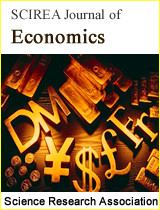Accounting Transformation for ESG Reporting in The Sustainability Agenda
DOI: 10.54647/economics790433 66 Downloads 219848 Views
Author(s)
Abstract
For sustainability, the transparent information environment is exceptionally substantial. One of the most common global practices that allows us to achieve this goal has become corporative ESG-reporting. The existence of numerous sustainable reporting and ESG-rating systems complicates the process of its harmonization, but progressively moving to synchronize them is already underway. To describe the organization’s contribution to sustainable development and long-term ability to generate value, ESG reporting should be grounded on a relevant and complete information base. Hence, a question arises as to whether accounting can act as a source of this reporting information, or whether additional alternative sources of data are required. Specifics of accounting subject field and procedures limits the non-financial reporting composing based only accounting-produced data. Believing accounting remains the main reporting information supplier, it is reasonable to revise its substantial field, and methodological approaches to provide proper ESG information. The objective of the study is to analyze the ongoing changes in corporate reporting, assess their impact on the accounting subject, identify directions for accounting update in the ESG agenda to ensure sustainable development. The paper dwells to expand the accounting conceptual area, to evolute its objects and methods, for further corporate reporting development in sustainability landscape.
Keywords
corporate reporting, ESG-reporting, sustainability, accounting, financial information, non-financial information, methodology, balance approach, data, integrate reporting, ISSB, GRI, standards, regulators
Cite this paper
Tatyana Odintsova,
Accounting Transformation for ESG Reporting in The Sustainability Agenda
, SCIREA Journal of Economics.
Volume 9, Issue 1, February 2024 | PP. 1-21.
10.54647/economics790433
References
| [ 1 ] | Bloomberg, 2021, February 23. ESG assets may hit $53 trillion by 2025, a third of global AUM. [Internet]. 2021. Available from: https://www.bloomberg.com/professional/blog/esg-assets-may-hit-53-trillion-by-2025-a-third-of-global-aum/ [Accessed: 2023-12-20] |
| [ 2 ] | Corporate Register. [Internet]. 2021. Available from: https://www.corporateregister.com/[Accessed: 2023-11-21] |
| [ 3 ] | IFRS Foundation, 2022, September 28. The growing momentum for integrated reporting: Part 1. [Internet]. 2022. Available from: https://www.integratedreporting.org/news/the-growing-momentum-for-integrated-reporting-part-1/ [Accessed: 2023-11-21] |
| [ 4 ] | Governance and Accountability Institute, 2022, November 16. New G&A Institute Research Shows Sustainability Reporting by Largest U.S. Public Companies Reached All-Time Highs in 2021. [Internet]. 2022. Available from: https://www.globenewswire.com/en/news-release/2022/11/16/2557344/0/en/New-G-A-Institute-Research-Shows-Sustainability-Reporting-by-Largest-U-S-Public-Companies-Reached-All-Time-Highs-in-2021.html [Accessed: 2023-10-11] |
| [ 5 ] | International Federation of Accountants, 2023, February 27. The State of Play: Sustainability Disclosure & Assurance 2019-2021, Trends & Analysis. [Internet]. 2023. Available from: https://www.ifac.org/knowledge-gateway/contributing-global-economy/publications/state-play-sustainability-disclosure-assurance-2019-2021-trends-analysis [Accessed: 2023-10-11] |
| [ 6 ] | KPMG 2021 CEO Outlook, 2021. Optimism is back in the boardroom. [Internet]. 2021. Available from: https://kpmg.com/xx/en/home/insights/2021/08/kpmg-2021-ceo-outlook.html [Accessed: 2023-10-11] |
| [ 7 ] | Ernst & Young, 2022, November. How can corporate reporting bridge the ESG trust gap? [Internet]. 2022. Available from: https://assets.ey.com/content/dam/ey-sites/ey-com/en_gl/topics/assurance/assurance-pdfs/ey-global-reporting-survey-report-2022.pdf [Accessed: 2023-10-11] |
| [ 8 ] | Halper J., Grieve D., Shriver, T., Cadwalader. ESG Ratings: A Call for Greater Transparency and Precision., 2022, November 10. [Internet]. 2022. Available from: https://corpgov.law.harvard.edu/ [Accessed: 2023-10-07] |
| [ 9 ] | Suits, V.P., Khorin A.N., Sheremet, A. D. Comprehensive analysis, and audit of integrated reporting on sustainable development of companies, Moscow: INFRA-M; 2020. — 184 p. DOI: 10.12737/1072676 |
| [ 10 ] | Malinovskaya, N., 2021. Problems with the definition of corporate reporting. Accounting. Analysis. Audit. 2021; 8(6): 31-41. |
| [ 11 ] | Vakhrushina, M.A., Malinovskaya, N.V. Corporate Reporting: New Requirements and Development Directions. International Accounting. 2014;16: 2-9. |
| [ 12 ] | IFRS Foundation, 2021. Integrated Reporting Framework. [Internet]. 2021. Available from: https://www.integratedreporting.org/resource/international-ir-framework/ [Accessed: 2023-10-12] |
| [ 13 ] | Global Reporting Initiative, 2021. Guidelines for Sustainability Reporting. [Internet]. 2021. Available from: https://www.globalreporting.org/ [Accessed: 2023-10-28] |
| [ 14 ] | Serebryakova, T.Yu., Kondrashova, O.R. Managerial accounting of information on segments as a part of integrated accounting. International Accounting. 2015; 8 (350). |
| [ 15 ] | Bogataya, I. N., Evstafieva E. M. Study of current trends in the development of accounting and reporting in the Russian Federation. International Accounting. 2013; 25 (271): 2-17. |
| [ 16 ] | Plotnikov, V.S., Plotnikova, O.V. Business accounting and integrated reporting. International Accounting. 2014; 13 (307). |
| [ 17 ] | Kalnitskaya I.V. Integrated Accounting and Analytical System for the Purposes of Organization Management. International Accounting. 2014; 22 (316). |
| [ 18 ] | Vakhrushina, M.A. Problems and Prospects for the Development of Russian Management Accounting. International Accounting, 2014; Vol. 33, ? 372: 12-23. |
| [ 19 ] | Malinovskaya N.V. Organization of the process of transition to integrated reporting. International Accounting, 2022; Vol. 25, ? 3: 300 – 313 |

